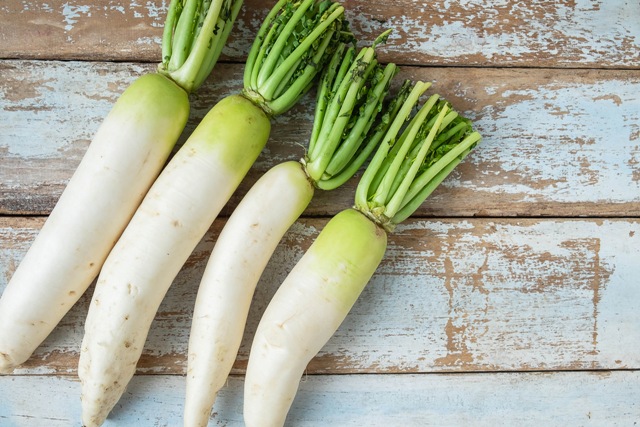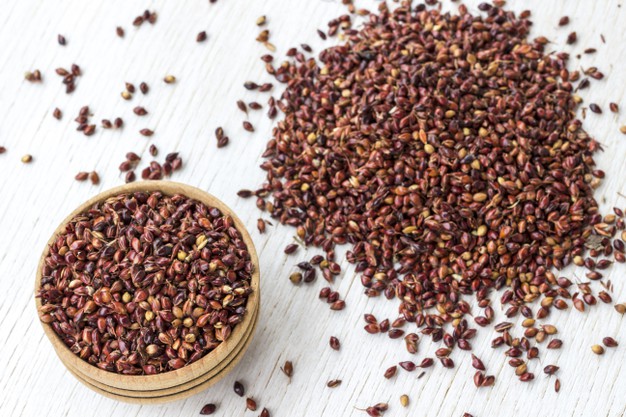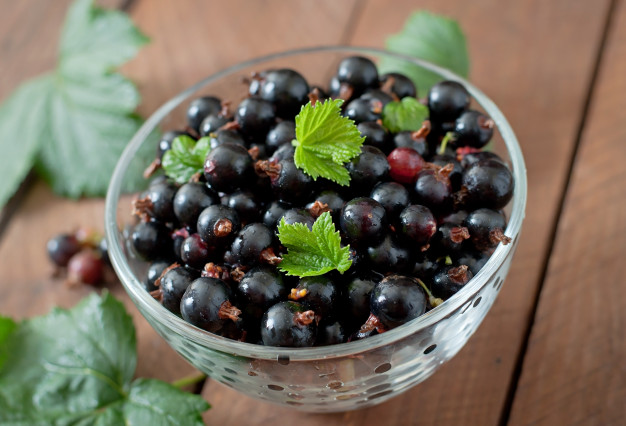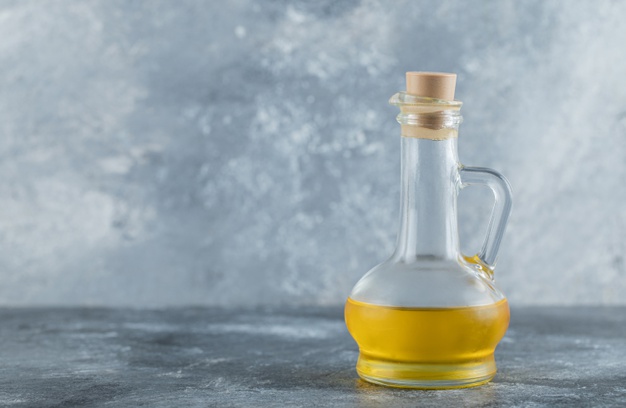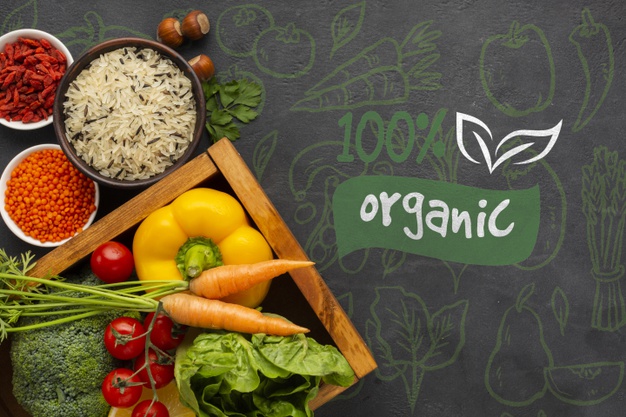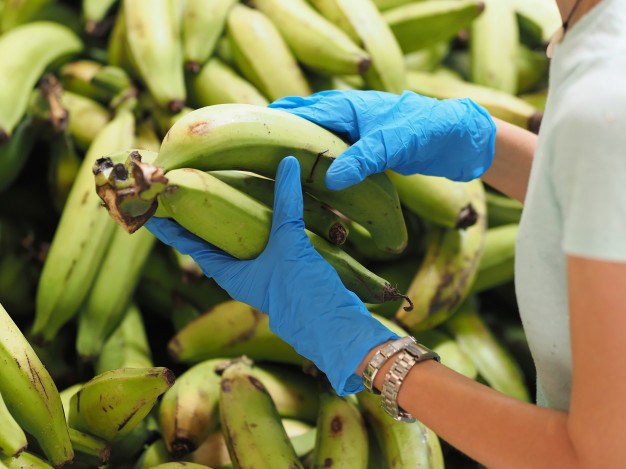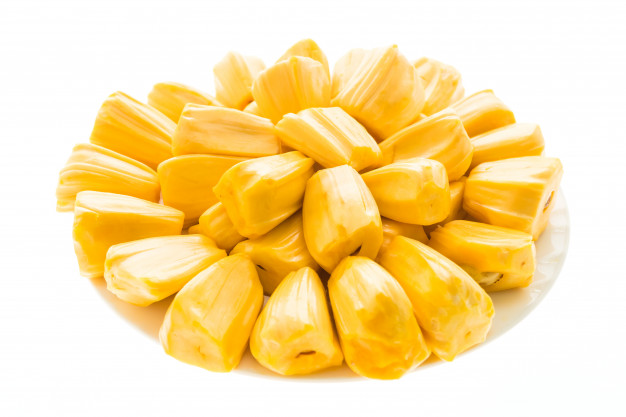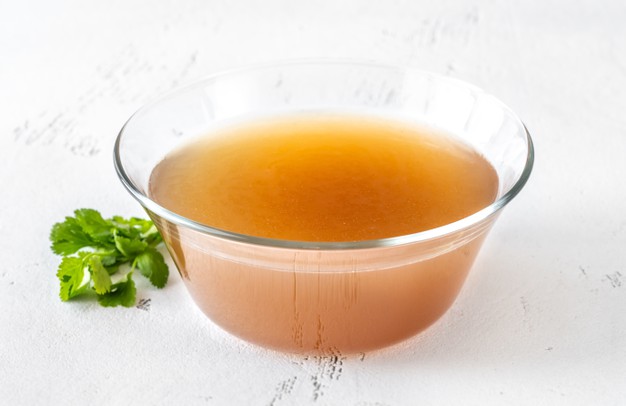Radish is one of the most nutritious and healthiest vegetables that has been extensively used for various therapeutic purposes
Nutritional profile
- It contains lesser amount of carbohydrates but significantly rich in fibre
- It does not contain enough fat
- It is loaded with several important vitamins and minerals that offer numerous health benefits
Biological activity
Antioxidant activity
- It is loaded with antioxidants that help to prevent oxidative damages of the body
- It plays vital role in protecting the body from the harmful effects of free radicals thus helps in reducing oxidative stress
Anti-carcinogenic activity
- Glucosinolates are the compounds present in radish help in exerting anti-carcinogenic activity
- It plays vital role in decreasing the susceptibility of genetic mutation as a result decreases the prevalence of cancers
- Its oxidative stress reducing activity is also considered as an important feature accountable for reducing the risk of developing cancers
- It is associated with eliminating those cells from body, which have the ability to grow into cancerous cells in future
- It helps to hinder the growth of malignant cells as well and prevents metastasis
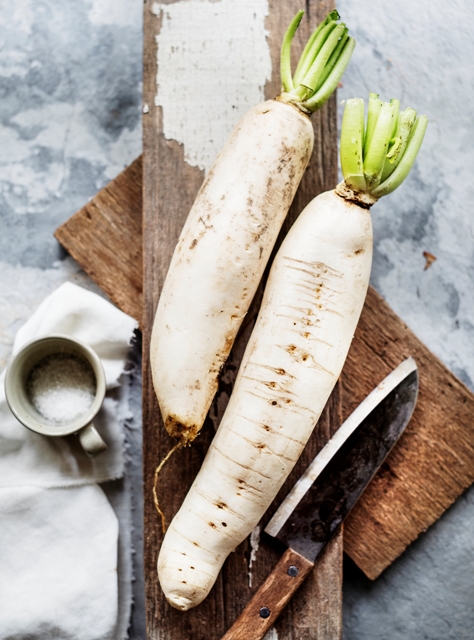

Antimicrobial activity
- It contains various imperative components that exhibit powerful antimicrobial activity that helps in suppressing the growth and replication of microbial cells within host, whereas it can destroy microbial cells as well
- It is extremely effective against Candida albicans, which is considered as one of the most vital fungi that is hard to fight off
- Its consumption is also associated with preventing vaginal infections
- It helps to prevent oral infection too
- It is also very effective against various bacteria
- Moreover its consumption is thought to be very effective for reducing the susceptibility of developing infectious diseases
Hypoglycemic activity
- Consumption of radish is very useful for regulating blood sugar level as it has hypoglycemic activity thus it is better to include radish in diet in order to prevent the onset of diabetes especially type 2 diabetes mellitus
- It helps in improving glucose metabolism that plays vital role in stabilizing blood sugar level
- It contains various important biological components that are responsible for regulating the activity of adiponectin as well as other hormones that are involved in glucose homeostasis
- Its fibre content is also associated with delaying the absorption of glucose from intestine as a result helps in reducing postprandial blood glucose load
- It helps in improving insulin sensitivity as well, which ultimately helps in decreasing blood sugar concentration

Hypotensive activity
- It exhibits potent hypotensive activity thus its consumption is thought to be very effective for preventing hypertension
- It contains adequate amount of potassium that helps in dilating blood vessels as a result improves blood flow that subsequently decreases high blood pressure
- Whereas it is also related with improving the health of blood vessels that also supports proper blood flow thus helps to lower the prevalence of hypertension
Health benefits
Role on immunity
- Its consumption is very effective for boosting up overall immunity of the body
- It contains various nutrients, which are essentially required by the body for a healthy functioning immune system
- Its Vitamin C content plays vital role in stimulating the synthesis of WBC that helps to make the body able to fight against infections
- It is also very effective for preventing normal cold and flu
Role on digestive health
- It contains adequate amount of fibre thus its consumption is thought to be very effective for promoting overall digestive health as we all know that fibre is one of the most vital nutrients required by the body for ensuring a fully functioning digestive system
- Whereas consumption of radish leaves is also very helpful for providing a positive impact on digestion
- It helps to enhance bowel movement thus prevents constipation
- Its consumption is also associated with preventing acid reflux
- It plays important role in improving the symptoms of irritable bowel syndrome
- It helps in improving colonic health as well
- Individual suffer from gastric ulcer should include radish in their diet as it helps in reinforcing the lining of the stomach as a result helps to improve the symptoms
- It is also associated with protecting all tissues of the gut from oxidative damages and also helps to support the growth of intestinal beneficial microbes, which ultimately helps in promoting gut health

Role on blood vessels
- Consumption of radish is very useful for promoting overall endothelial health and functionality
- Its Vitamin C content is responsible for stimulating the production of collagen, which ultimately helps to boost the blood vessels and thus decreases the prevalence of atherosclerosis (hardening of blood vessels)
- It helps to protect the vessels from free radical induced oxidative damages as well
- It is also associated with supporting proper blood flow
Role on metabolism
- It is better to include radish in diet for ensuring a healthy metabolism
- B vitamins present in radish help in improving overall metabolism of the body as they act as coenzyme in various metabolic reactions
- As it is related with enhancing the metabolic rate of the body thus its consumption is thought to be very effective for decreasing the prevalence of metabolic syndrome like obesity, diabetes, cardiovascular disease etc

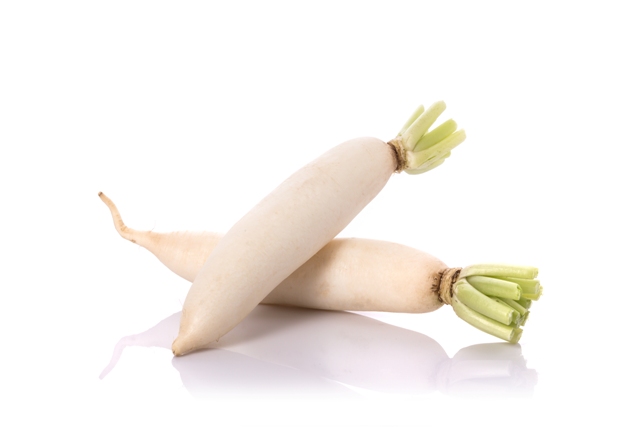
Role on hydration
- It is rich in moisture content thus its consumption is really very helpful for hydrating the body
- It is better to consume radish especially in summer as it helps to keep the body hydrated and also helps in restoring the water that have lost during sweating
Role on skin
- Being a hydrating food consumption of radish is very useful for promoting overall skin health
- It helps to improve skin appearance
- It is also associated with improving skin elasticity and all the credit goes to its Vitamin C content
- Its Vitamin B9 content is responsible for reducing oxidative damages of the skin, which ultimately makes the skin supple
- Vitamin B6 present in radish helps in preventing premature aging as well
- It is also related with protecting the skin from the harmful effects of UV radiation
Therapeutic uses
It has been extensively used for various therapeutic purposes, which include –

- It acts as an imperative therapeutic substance for cardiac health as it contains various nutrients that promote the health as well as the activity of heart and also helps to reduce the susceptibility of cardiovascular diseases
- Its fibre content helps in decreasing cholesterol concentration within body thus helps in preventing hypercholesterolemia
- It also helps to decrease the prevalence of kidney stone
- Its Vitamin C content is accountable for stimulating collagen synthesis, which ultimately helps in promoting the health and functionality of connective tissues
- Its consumption is also very helpful for obtaining a healthy nervous system. It contains several nutrients that support the activity of brain
- It plays vital role in preventing multiple sclerosis
- It is very effective for facilitating weight reduction as well
- It acts as an effective expectorant as well thus consumption of radish or radish juice is thought to be very useful for relieving cough
- It is also associated with controlling the damages of RBCs and helps in increasing oxygen supply as well
Culinary uses
- It can be consumed with salad
- A burger can be topped with a slice of radish and lettuce
- It can be well utilized for preparing vegetable dishes
- Pickled radish can also be consumed
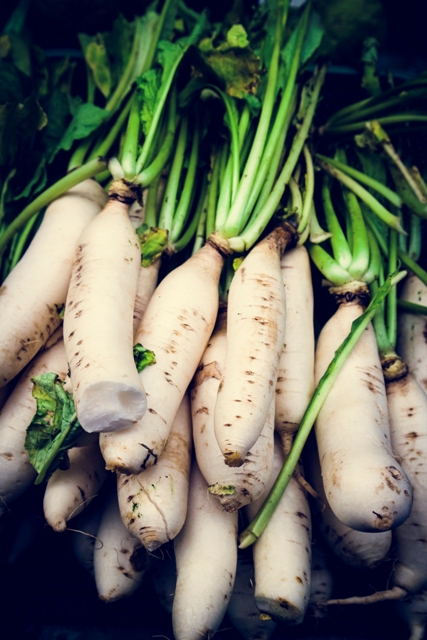

Source:
Banihani, S.A., 2017. Radish (Raphanus sativus) and diabetes. Nutrients, 9(9), p.1014.
Curtis, I.S., 2003. The noble radish: past, present and future. Trends in Plant Science, 8(7), pp.305-307.
Khalid, M., Ayayda, R., Gheith, N., Salah, Z., Abu-Lafi, S., Jaber, A., Al-Rimawi, F. and Al-Mazaideh, G., 2020. Assessment of Antimicrobial and Anticancer Activity of Radish Sprouts Extracts. Jordan Journal of Biological Sciences, 13(4).
Kumakura, K., Kato, R., Kobayashi, T., Sekiguchi, A., Kimura, N., Takahashi, H., Takahashi, A. and Matsuoka, H., 2017. Nutritional content and health benefits of sun-dried and salt-aged radish (takuan-zuke). Food chemistry, 231, pp.33-41.
Singh, A. and Sharma, S., 2020. Radish. In Antioxidants in Vegetables and Nuts-Properties and Health Benefits (pp. 209-235). Springer, Singapore.
